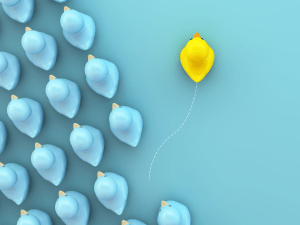Graduate school is demanding, and for many, it’s about survival, not just success. Between work, family responsibilities, and the weight of coursework, it can feel like there’s no room for anything else. Whether you’re a single parent, working part-time, or juggling multiple responsibilities, your mental health can take a hit if not managed properly.
Here’s a practical mental health checklist that gives you real, actionable steps to help you survive and thrive during this intense time, especially when you don’t have much time or support to rely on.

1. Prepare for Time Poverty
Time is your most limited resource in grad school, especially if you’re juggling work, family, and school. You won’t always have the luxury of “free time,” so it’s crucial to plan for that. Rather than relying on long breaks or days off, focus on micro-moments of productivity and relief.
Practical Tip: Set up a daily to-do list of non-negotiables—what must get done today—and stick to it. Group tasks into 10-15 minute windows: can you read two pages of a paper while waiting for your kids at practice? Can you respond to emails or listen to a lecture during your commute? This mindset will help you maximize every minute.
Checklist Task: Identify small pockets of time in your day where you can fit in essential tasks and keep a running list of quick things to do during these moments.
2. Create Non-Negotiable Boundaries
In grad school, there’s always going to be more you could do—another assignment, another project, another study group. However, protecting your time is key to staying mentally stable. If you have kids, work, or other commitments, this can feel impossible. But establishing boundaries can protect you from burnout.
Practical Tip: Tell people “no” more often. If it’s not necessary or urgent, it can wait. Communicate these boundaries to classmates, professors, and even family. Don’t let people push beyond what you can reasonably handle.
Checklist Task: Write out a list of things you won’t compromise on—your kids’ bedtime, one uninterrupted hour of work time—and hold firm to these boundaries.

3. Stop Multitasking—It’s a Trap
It might seem like doing multiple things at once is the best way to maximize time, but multitasking can often lead to more stress and less productivity. Instead, focus on one thing at a time and work in blocks.
Practical Tip: Use the Pomodoro Technique—work for 25 minutes, then take a 5-minute break. Repeat the process for as long as necessary. This forces you to give your full attention to one task without feeling like you have to tackle everything at once.
Checklist Task: Download a Pomodoro timer app and use it to tackle your most pressing tasks. This way, even during your busiest days, you’ll have dedicated moments of productivity.
4. Be Ruthless with Your Priorities
When you’re in the thick of grad school, the harsh reality is that you can’t do everything. Prioritize what will actually move the needle. That may mean dropping extracurriculars or limiting social interactions for a time.
Practical Tip: Create a priority triage system. Label your tasks into three categories:
- Must do now (urgent deadlines or essentials)
- Can wait but needs attention (important but not immediate)
- Can be let go (extra opportunities that won’t make or break you).
Checklist Task: Take inventory of all your commitments. What truly needs your attention? Ruthlessly cut out anything that’s not essential right now.
5. Have a Financial Contingency Plan
Financial stress can wreak havoc on your mental health. Whether it’s a medical bill, car repair, or a sudden child care need, unexpected expenses are common in grad school. Without a buffer, these moments can cause major setbacks.
Practical Tip: If possible, set aside a small emergency fund for those surprise costs, even if it’s just $20 a month. If savings aren’t an option, have a back-up plan—know which family member, friend, or side gig you can turn to in a pinch.
Checklist Task: Make a list of potential resources—side gigs, financial aid options, or people who can offer short-term help—so you don’t panic when unexpected expenses arise.
6. Build a “Survival Kit”
You’re not going to have time to meal prep, exercise every day, or take long breaks when things get intense. But you can set up a mental health survival kit for those particularly rough days. This isn’t about luxuries—it’s about the bare minimum that helps you function.

Practical Tip: Include things like a stash of quick, healthy snacks (protein bars, fruit, nuts), simple 5-minute relaxation techniques (like breathing exercises), and quick workout routines you can do at home.
Checklist Task: Stockpile items that support you in a pinch—whether it’s caffeine, a few comfort foods, or even quick podcasts that help you reset during chaotic times.
7. Use Your Phone Smartly
Your phone can be a major source of distraction, but it can also be a tool for survival. Instead of doom-scrolling, use apps to streamline your life.
Practical Tip: Use productivity apps to keep you organized (like Google Calendar or Todoist), stress-relief apps (like Headspace or Calm), or even motivational podcasts you can listen to while commuting or doing chores.
Checklist Task: Organize your phone so that the first apps you see are helpful—study tools, task managers, or time-blocking apps—rather than distractions.
8. Know When to Walk Away
Sometimes, the best way to save your mental health is by knowing when to take a break. When everything feels like it’s falling apart and you’re pushing past your limit, give yourself permission to step back. This isn’t about self-care in a fluffy sense—it’s about preserving your ability to keep going in the long run.
Practical Tip: When you’re feeling overwhelmed, stop. Walk away from the screen, leave the room, or take a breather. Even a 5-minute break can clear your head and allow you to refocus.
Checklist Task: Set an alarm on your phone to remind you to take a 5-minute break every few hours. If you feel like you can’t take a break, that’s usually when you need it most.
Final Thoughts: A Realistic Mental Health Plan for Grad School
Graduate school isn’t just an academic journey—it’s a mental one, too. When you’re balancing life, family, work, and studies, you need more than just generic advice on self-care. You need survival strategies to get you through the toughest days. By planning for time poverty, setting clear boundaries, and focusing on what truly matters, you can protect your mental health even in the midst of chaos. Grad school is hard, but with the right tools, you can navigate it without losing yourself along the way.


